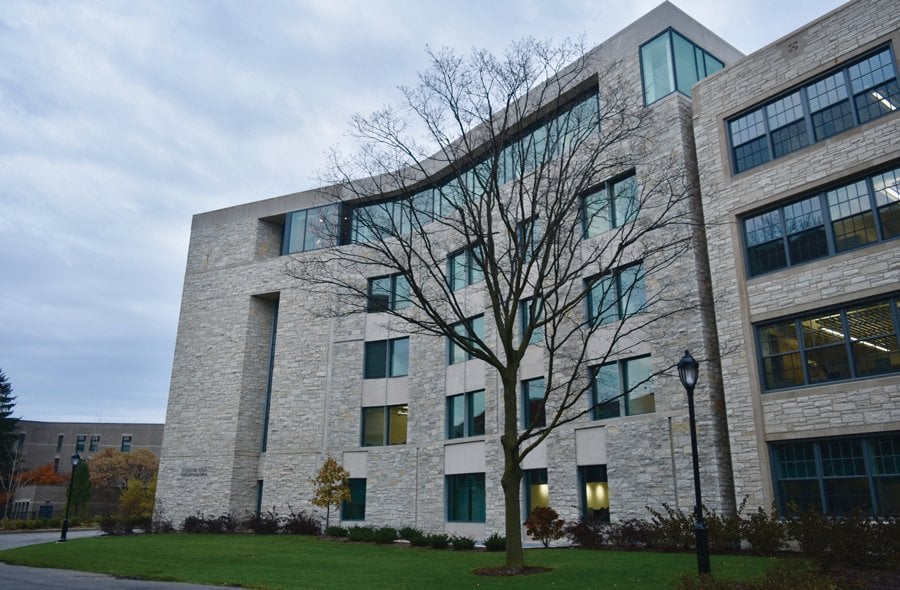Activists and scholars imagine a world without police and prisons at “Abolitionist Futures” speaker event
Daily file photo by Brian Meng
Crowe Hall, which houses the Council for Race and Ethnic Studies. The discussion was part of the CRES’s inaugural spring speaker event “Abolitionist Futures.”
May 6, 2021
On the sixth anniversary of Chicago’s reparations ordinance, local activists and scholars discussed police abolition, collective approaches to community organizing and healing from state violence in a Thursday discussion.
The event, hosted by the Council for Race and Ethnic Studies in its inaugural spring speaker event “Abolitionist Futures,” was moderated by Asian American Studies Prof. Patricia Nguyen.
The discussion and Q&A featured founder of Black Lives Matter Chicago and co-executive director of the Chicago Torture Justice Center Aislinn Pulley, and Prof. Dylan Rodriguez, who teaches media and cultural studies at the University of California at Riverside.
The conversation began with an acknowledgement of Chicago’s reparations legislation anniversary and the role of community organizing, especially from incarcerated individuals and police violence survivors, in the passage of the historic law.
“The reparations ordinances in Chicago is the first one in the nation that actually addresses police violence, racialized police violence,” Nguyen said.
Pulley said the law featured elements of transformative justice in beginning to address the psychological impacts of state violence and torture.
However, she said there have been many challenges to the reparations package from local officials as the Chicago Torture Justice Center’s pushes for continued funding.
“While we celebrate that we are six years in, we also know that this is a struggle and a fight that we will have to continue to defend,” Pulley said.
Rodriguez added that the language surrounding police violence shapes organizing practices and politics in relation to abolition. He discussed the dangers of adopting a language of reform during revolutionary periods when the legitimacy of the police is being questioned.
When reform becomes the primary response to state violence, it reinforces the idea that the state holds the solution to the violence it perpetuates, he said.
Pulley then discussed healing practices for those who have been impacted by state violence. The Chicago Torture Justice Center follows a “politicized healing framework” that centers collective healing and community care, she said.
Healing doesn’t always happen within the confines of a therapist’s office, Pulley said, because access to these kinds of mental health resources is a privilege and inaccessible to many.
“Part of healing is dismantling the systems of trauma…fighting to end policing, fighting to end incarceration are all active parts of healing, they’re not disconnected,” Pulley said.
During the Q&A, Rodriguez addressed a question about police violence from a student. He said “copaganda”— celebratory portrayals of police in the media — make people see the police as “self-determined individuals,” rather than an institution that inflicts harm on communities.
The event concluded with an emphasis on collective organizing and finding community spaces at universities. Both Pulley and Rodriguez said they commended the organizing efforts of NU Community Not Cops and the movement to get police off college campuses at Northwestern and beyond.
“If you’re not already connected to some kind of community of people who are trying to do liberationist-abolitionist-oriented work…be promiscuous about how you understand this work, be promiscuous about how you understand these communities,” Rodriguez said. “The most important thing is to be engaged in some kind of community whether it’s established or whether you form it yourself.”
Email: [email protected]
Twitter: @jacquygermain
Related Stories:
— Professors discuss Black and White feminism at anti-racism speaker series
— Women scholars discuss links between prison activism and research in NPEP panel
— Youth gather, paint abolition banners at Evanston Fight for Black Lives ‘Reclaim the Block’ event


